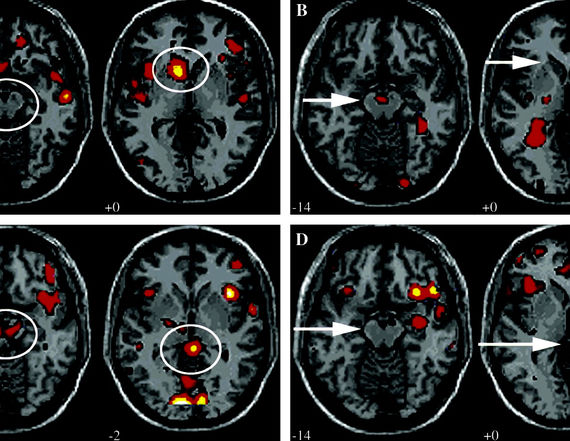Scholarship
with Impact.
RECOVERING INSIDE: ETHICAL CHALLENGES IN CORRECTIONAL MENTAL HEALTH CARE
A shadow health care system now exists behind bars in the US, with a substantial amount of behavioral health care delivered there.
There are approximately 2.6 million people incarcerated in the US, which equates, by far, to the world’s highest incarceration rate (~700/100,000 people). It is estimated that 50% of inmates of jails and prisons have a mental illness, and 15-20% have a serious mental illness.
By convening an interdisciplinary research group that includes bioethicists, clinicians, prison reform advocates, and (at least) one former inmate, we will develop a novel line of bioethics research to examine ethics and policy questions in correctional mental health care.
This project is funded by the Leonard Davis Institute of Health Economics at the University of Pennsylvania
LEARN MORE
HIGH IMPACT PAPERS
More From ScattergoodEthics
Research In the News
Times Union | Commentary: With vaccine stance, Nurses Association sets poor example | August 2021
WOSU All Sides with Ann Fisher | Legal And Ethical Issues Surrounding COVID Vaccine Mandates | August 2021
US News & World Report | Half of U.S. Teens Plan to Get COVID Shot, But Can Numbers Go Higher? | July 2021
PUBS Podcast | Ethical Considerations in Mental Health Research and Care Delivery | April 2021
All Sides with Ann Fisher | Moral And Ethical Complexities Of COVID-19 | March 2021
The Daily Pennsylvanian | Penn Med experts question Trump's COVID-19 treatment plan and his downplaying of virus | October 2020
Penn Live | Recreational cannabis, racial justice, and an ethical way forward for Pennsylvania | September 2020
New York Post | Kanye West needs help, but mental-health laws make it tough to intervene | July 2020
Psychology Today | When Autism Advocacy Is "Partial" | June 2020
WHYY The Pulse | Social Media’s ‘Infodemic’ | June 2020
WOSU Radio | Pandemic Ethics | June 2020
WHYY | Protests, masks and public health: where do my rights end and yours begin? | May 2020
The Philadelphia Inquirer | Should coronavirus lockdown protesters waive their medical care? Some medical ethicists think so. | May 2020
The New York Times | What’s Going to Happen to Junior, Now That His Mother Is Dead? | May 2020
All Inclusive | How Do Healthcare Providers Treat Patients Equally During the COVID-19 Pandemic? | April 2020
Social Work Helper | New White Paper Provides Triage Blueprint for COVID-19 Pandemic to Protect People with Disabilities | April 2020
The Appeal | In Alabama, Prisoners Must Sign Consent Form to Get Protective Masks | April 2020
WHYY | Finding Help for Schizophrenia in a ‘Broken’ System | April 2020
Medscape | Suicidal Patients Often Excluded From Antidepressant Trials | February 2020
The Atlantic | Your Chemical Romance | January 2020
WHYY | Missing and Mentally Ill: How Much Does the Public Need to Know? | January 2020
Philadelphia Magazine | In “Assault on Privacy,” Philly Police Routinely Reveal Mental Health Status of Missing City Residents | December 2019
Psymposia | As Legal Psychedelic Therapy Emerges, Ethicists Urge for More Comprehensive Frameworks to Address Sexual Abuse | November 2019
City Journal | Treatment with Dignity | November 2019
WHYY | The Myth of Mental Illness and Gun Violence | August 2019
The Wall Street Journal | After Trump Blames Mental Illness for Mass Shootings, Health Agencies Ordered to Hold All Posts on Issue | August 2019
The Prodromal Schizophrenia Empirical and Ethical Nexus (PSEEN) Initiative
The PSEEN Initiative aims to indentify and examine ethical and policy issues generated by rapidly advancing technologies that will allow early detection and possibly prevention of psychosis spectrum disorders.
In partnership with the Neuropsychiatry Section in Penn's Department of Psychiatry, we will approach these issues along two research tracks: empirical bioethics and normative analysis.
Key problems to be addressed by this initiative will be to clarify the concept of prodromal psychosis and examine derivative ethical challenges, such as appropriate disclosure of risk information, mitigating stigma, and respecting the autonomy of adolescents as transitional decision makers.
The PSEEN Initiative is supported a grant from the Greenwall Foundation.
Learn More
Prescribing Medical Cannabis: Ethical Considerations for Primary Care Providers
Aaron Glickman & Dominic Sisti | The Journal of Medical Ethics
Despite the increased accessibility and use of medical cannabis, physicians have significant knowledge gaps regarding evidence of clinical benefits and potential harms. We argue that primary care providers have an ethical obligation to develop competency to provide cannabis to appropriate patients. Furthermore, specific ethical considerations should guide the recommendation of medical cannabis.
Read the Article
Applied Ethics in Mental Health Care: An Interdisciplinary Reader (MIT Press, 2013)
Dominic Sisti, Arthur Caplan, Hila Rimon-Greenspan, eds.
"In this superb volume, Sisti, Caplan, and Rimon-Greenspan have gathered in one place some of the most thoughtful and incisive thinkers about the difficulties of caring for people with mental illness. Applied Ethics in Mental Health Care is an important and timely contribution to this ongoing ethical conversation."—Paul Root Wolpe, Asa Griggs Candler Professor of Bioethics and Director of the Center for Ethics, Emory University
ORDER | REVIEWS
Immune to Addiction: The Ethical Dimensions of Vaccines Against Substance Abuse
Michael J. Young, Dominic A. Sisti, Hila Rimon-Greenspan, Jason L. Schwartz, and Arthur L. Caplan. Nature Immunology 13, no. 6 (2012): 521-524.
Promising advances have been made in recent years for a unique class of immunotherapies that use vaccination to combat substance-use disorders. Although such vaccines are potentially useful for addictions, they raise a variety of ethical and social questions.
Read the Article
Mental Health Reform in America: Thomas Scattergood (1748 – 1814)
David Roby
The personal disposition of Thomas Scattergood combined with the timing of his visit to the York Retreat were profoundly fortuitous in the founding of Friends Hospital. “To Thomas Scattergood, a minister in the Society of Friends, it is generally believed that we are indebted for the inception of the institution.”
Read the Essay
Seeking Common Ground in Very Different Views of Mental Illness
February 27, 2015
Dominic Sisti, Joseph Rogers, Michael Brody, Andrea Segal | The Public's Health
Mental health care in the United States continues to be under-resourced, plagued by fragmentation, subjected to ever-changing political forces, and influenced by public misunderstanding and controversy. Consensus on how to best serve people with mental health conditions remains elusive.
Read the Article
Video
Recovering Inside? Ethical and Policy Challenges in Correctional Behavioral Health Care
The Goldwater Rule: Dominic A. Sisti, PhD talks with Maria A. Oquendo, MD, PhD
The Goldwater Rule: A Conversation Between Dominic A. Sisti and Jonathan D. Moreno
Steven Sharfstein, MD on the ACA Repeal and Mental Health Care
A Debate on Treating Mental Illness: Should We Bring Back Asylums?









